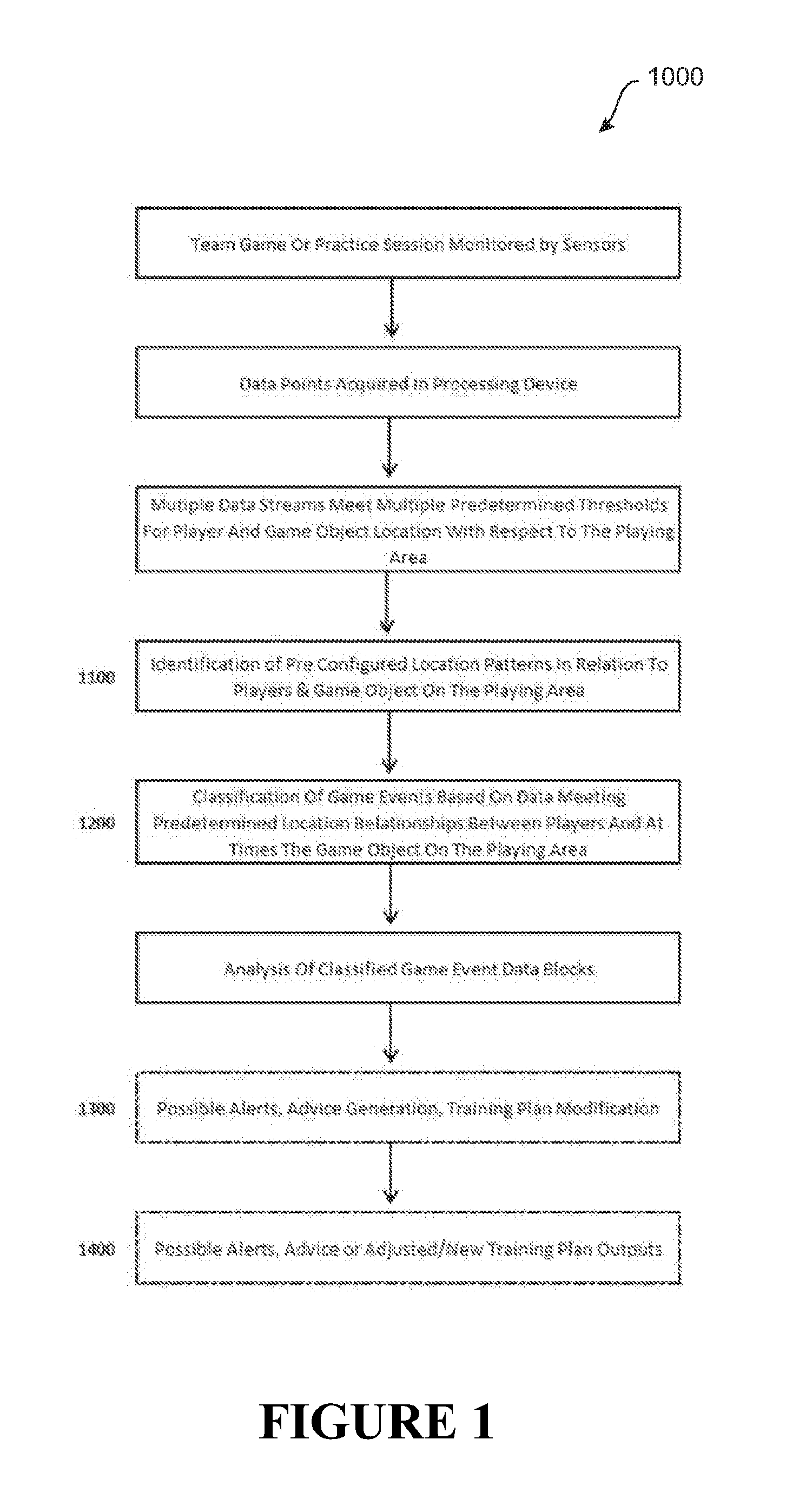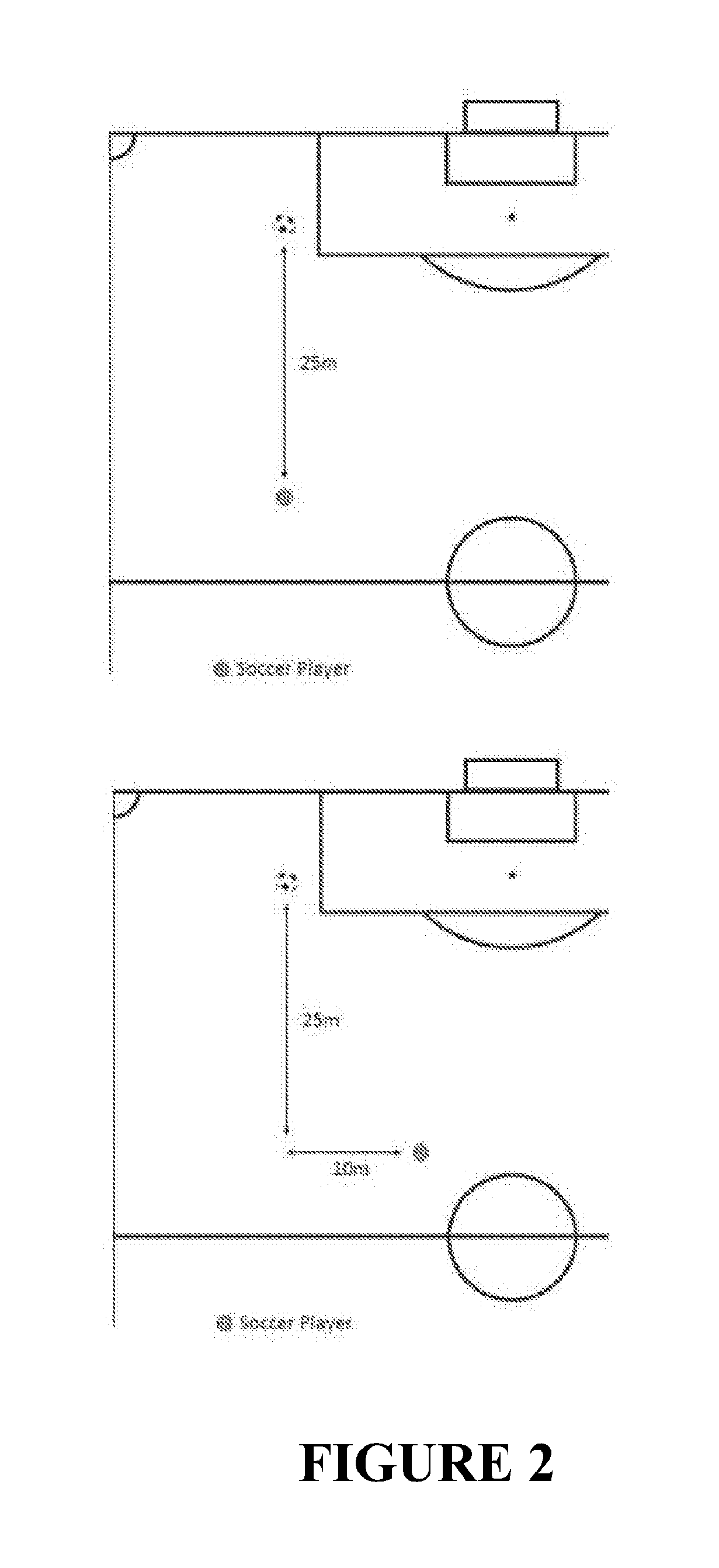Classification of Activity Derived From Multiple Locations
a classification and activity technology, applied in the field of exercise/or activity monitoring, can solve the problems of inability to automatically characterise the quality of the assist, pass or goal, and the analysis and processing of the data is very time-consuming and difficult to use in a real time situation
- Summary
- Abstract
- Description
- Claims
- Application Information
AI Technical Summary
Benefits of technology
Problems solved by technology
Method used
Image
Examples
embodiment (
PREFERRED EMBODIMENT(S)
[0284]The system and method of the invention may be implemented using the following classification systems both of which involve the geo spatial relationship between players and the game object and in relation to locations on the playing area. There are two applications of this system; classification of tactical ability and classification of player technical quality and or skill. This implementation should not be considered as limiting the scope of the invention but rather a preferred embodiment of the underlying classification concept defined above.
PUM
 Login to View More
Login to View More Abstract
Description
Claims
Application Information
 Login to View More
Login to View More - R&D
- Intellectual Property
- Life Sciences
- Materials
- Tech Scout
- Unparalleled Data Quality
- Higher Quality Content
- 60% Fewer Hallucinations
Browse by: Latest US Patents, China's latest patents, Technical Efficacy Thesaurus, Application Domain, Technology Topic, Popular Technical Reports.
© 2025 PatSnap. All rights reserved.Legal|Privacy policy|Modern Slavery Act Transparency Statement|Sitemap|About US| Contact US: help@patsnap.com



